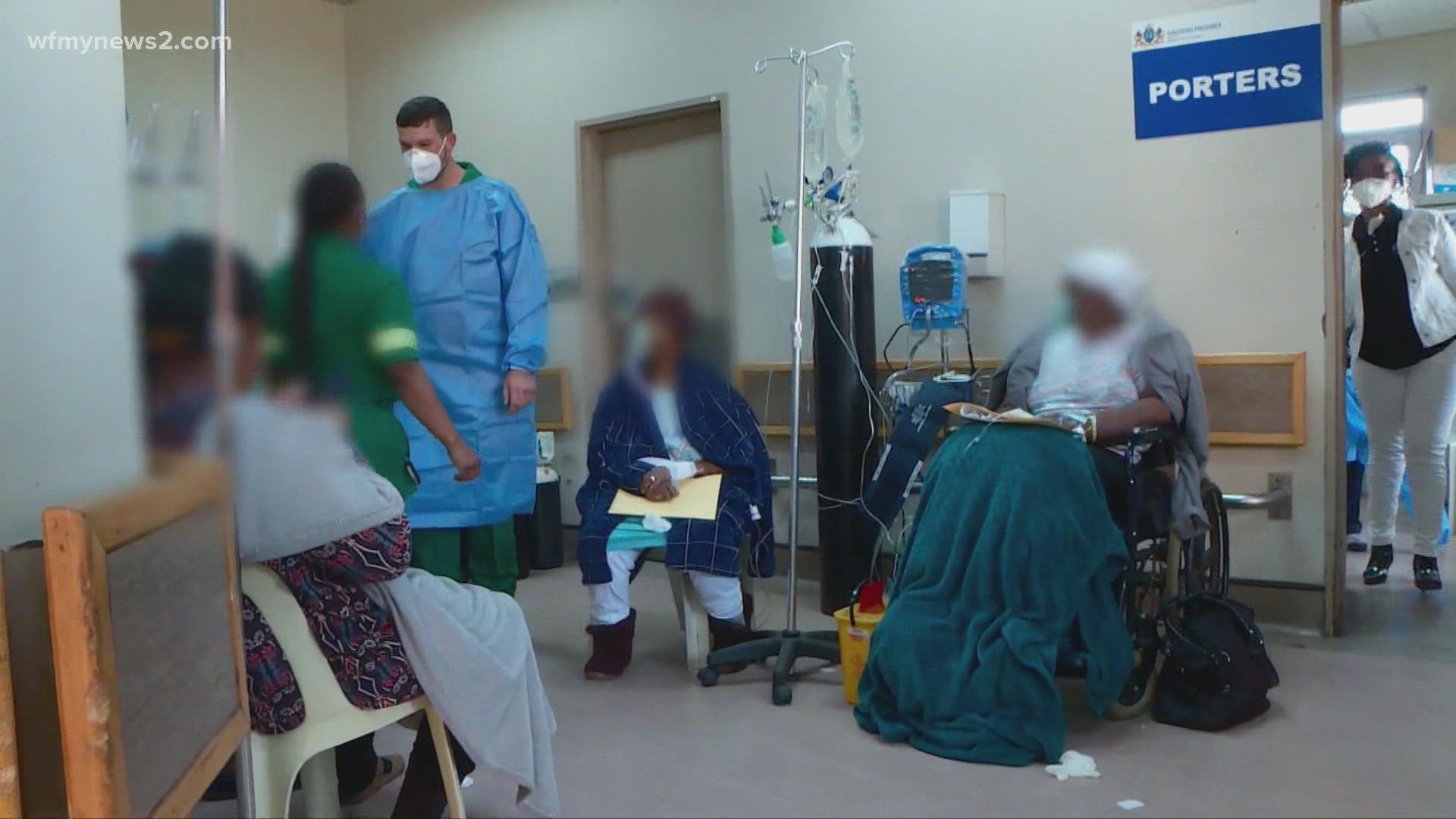GUILFORD COUNTY, N.C. — A new highly transmissible coronavirus variant is spreading overseas, and it's called Omicron.
On Friday, Nov. 26, the Biden administration announced a travel ban from South Africa and seven other nations for non-U.S. citizens.
WFMY News 2 answers five key questions about the omicron variant.
First, we address the travel ban. The restriction on travel from Botswana, Eswatini, Lesotho, Malawi, Mozambique, Namibia, South Africa, and Zimbabwe starts Monday, November 29.
"I decided that we're going to be cautious, make sure there is no travel to and from South Africa and six other countries in that region except for American citizens who are able to come back," President Joe Biden said.
We've seen several variants of COVID-19, so what makes this one different?
We know it's spreading fast, but whether it moves faster than delta or if it's more deadly, we still aren't sure. The first case popped up about two weeks ago, according to health experts.
"It will be very difficult to anticipate it will do anything different to what we have seen with delta which is that it would grow and spread across the world,"
Professor and Public Health Expert Salim Abdool Karim said.
Why are health officials so concerned? It's because of the variant's large number of mutations.
"From the face of it, this variant has the two characteristics we've been most concerned about, which is high transmissibility and some level of immune escape," Karim said.
"The good thing is that we have monitoring systems around the world to detect these variants very quickly," Maria Van Kerkhove with the World Health Organization said. "This variant was detected a few weeks ago and already scientists are sharing research with us, information with us."
So what can you do about it? Well, it's the same protective measures we've been talking about for nearly two years now. Get your vaccine and booster, wear a mask in crowded places and wash your hands.

